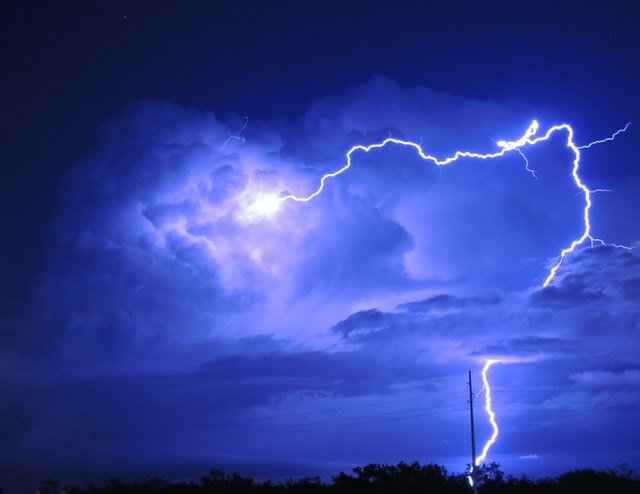3 April 2018
Are you ready for Queensland’s storm season?
Every year Queensland residents feel the brunt of many summer storms, being storm-ready is the only way to approach the coming season. By preparing correctly you can minimise the effects of these sometimes devastating storms.
Electrical safety is paramount in a storm or flood situation. Electrical hazards are often difficult to see during the chaos of a storm. When in doubt call an electrician to investigate, NEVER attempt electrical work yourself. It is illegal and very dangerous. Avoid any area that has damaged or fallen powerlines.
Preparation before the storm
- Prepare an emergency plan with others in your home or workplace. (Keep a copy of this plan in your home emergency kit.)
- Prepare a home emergency kit – 3 days worth of essentials, portable radio, torch, first aid kit, important documents and cash in waterproof bags, any medication needed, food and water.
- Prepare for evacuation if needed.
- Outside your home – Clear gutters and downpipes, trim tree branches, secure loose items.
- Learn how to safely turn off the electricity, water and gas to your home.
- Ensure your insurance is adequate and up to date (include home contents and car as well as home insurance)
- Enlist a licensed electrician to install a safety switch into your home. If you have one already, check that it is working correctly.
- Ensure all your electrical equipment is in good working order (power points, power boards, extension leads).
- Pack away any electrical equipment that is not in use.
- Disconnect external television and radio aerials.
During the storm
- When the storm approaches switch off and unplug all electrical equipment. This is essential in the case of lost power to the area as electrical equipment can be damaged or cause electric shock.
- Don’t use a fixed telephone during the storm as it can deliver an electric shock.
- Keep up to date with the storm’s progress by listening to your battery-powered radio.
- If flooding occurs relocate electrical equipment as high off the ground as possible.
- If you are driving during the storm strike, stop the vehicle well away from trees, watercourses and powerlines. Remain in the vehicle unless it becomes unsafe (vehicle fire).
- Portable generators should only be used to power essential equipment such as fridges.
- Caution – only connect the generator to your house if a proper generator change-over switch with the appropriate generator socket has been installed by a qualified electrician.
- Always run the generator outside or in a well-ventilated area and don’t overload.
- Report to electrical distribution entity if mains power is lost.
- If you are required to leave your home keep clear of electrical cables, foil insulation, electrical signs, street lights or any metal electrical items which may be carrying an electrical current.
After the storm
- Continue to listen for official warnings and storm advice.
- Avoid any fallen or damaged powerlines.
- Report any damage to powerlines or the underground service pillar, and keep clear of the area.
- Undertake an electrical safety check of the rest of your property.
- Stay clear of switchboards if they have been damaged by water, fire or if lightning is close.
- Contact a licensed electrician to perform a safety check to ensure all wiring, equipment and switchboard are working correctly.
- Seek professional advice if you suspect any damaged areas contain asbestos.
- Have a licensed electrician check any appliances or electrical equipment that your suspect has been water affected or damaged.
DO NOT ATTEMPT TO CARRY OUT YOUR OWN ELECTRICAL WORK AT ANY TIME! THIS COULD RESULT IN LIFE-THREATENING INJURIES.
To arrange an Electrical Safety Check of your home before the storm season hits or after any damage call Fallon Services on 1300 762 260 or complete our Electrical Safety Check form and one of our friendly team will contact you.
Suggested articles
No articles found

